I’ve been deeply engaged in the automotive world and during these years, I’ve faced various car issues. I’m going to provide you with 30 common car issues and their solutions. Battery failure is one of the most common issues.
Unfortunately, it happens unexpectedly and puts you in trouble. If you know its reason and solution, you can deal with it easier and save your time and money.
One of my most helpful discoveries is that you should be knowledgeable to be able to maintain your car properly.
It makes no difference whether you’re an expert driver or a newcomer; you should be able to address your vehicle’s potential issues. I’m here to not only familiarize you with common issues but also teach you how to fix them.
We’re going to talk about a range of problems; from a battery failure to mysterious check engine lights.
So it’s worth reading this article to the end. Stay tuned for a detailed inspection of these issues of car maintenance. Once you gain this piece of information, you’ll be capable of maintaining your car’s smooth performance.
You might also enjoy: 2013 Lexus CT 200h Problems: 7 Issues You MUST Know
Top 30 Common Car Problems + My 2024 Solutions
I’m an experienced car professional and enthusiast and among these years of hard work, I learned about lots of automotive issues and their solutions. I also learned how to diagnose and address the issues.
Now, I want to share this information and solutions with you to help successful in car maintenance. I will mention 30 top issues and their solutions.
1. Flat Tires
Imagine on a sunny day you’re getting ready to drive somewhere, but unfortunately, you face a flat tire. This can be happened by a sharp object.
The solution is so simple; all you need to do is replace the tire. You can use your spare tire. If you’re on the road, make sure to park safely before the replacement.
To ensure the issue is fixed completely, you can visit a tire shop and ask them to replace your tire.
2. Dead Battery
A battery failure happens unexpectedly; you may face it in the morning when you want to go to work. It’s often due to the battery’s age, however, sometimes there is a reason for it.
For instance, your lights were left on during the night. To solve the problem just replace the battery.
3. Brake Problems
In case you’re hearing a squeaking noise while braking, your brake pads aren’t working. You should prevent this issue by doing regular checks.
However, if you witness a significant malfunction like a brake fluid leak, you’d better seek professional help.
4. Faulty Alternator
If your battery dies after jump start or your electrical system acts up, your alternator is failing. Replacing an alternator requires expertise and a professional should do it, because it includes a complex electrical system. So don’t hesitate to visit a repair shop.
5. Steering Wheel Shaking
If you feel shakes in the steering wheel, it can be caused by unbalanced tires, misalignment, or other unknown factors. You should visit a tire or auto shop for the diagnosis and fix. It’s often solved by balancing the tires.
6. Overheating Engine
Overheating is considered a serious problem. The reasons for that are various. For instance, coolant leaking, water pump problems, or failing thermostats lead to overheating.
In case of facing it, first, check your coolant level to see if it’s leaking or nit. If it isn’t, consult with a mechanic.
7. Transmission Issues
Strange noises in gear shifting can be alarming. This is a complex part for you to fix. You should visit a mechanic. However, regular transmission fluid checks and changes are preventive.
8. Oil Leaks
See spots in your driving path? Can be because of oil leaks. There are two potential causes for this. First is a loose oil filter that is so simple. However, the second is as complex as a seal or gasket issue. To find out, ask a mechanic to diagnose it.
You might also enjoy: I Found 10 Reasons Why Your Car Battery Smoking [2023]
9. Check Engine Light
Check engine light is a controversial issue. It can caused by many factors; from a loose gas cap to severe issues like misfires.
Using an OBD2 scanner will be helpful to read the diagnostic codes and fix the problem. However, for a permanent solution, I recommend you to visit a repair shop.
10. Faulty Spark Plugs
Spark plug malfunction is diagnosed by misfires or problems in starting the vehicle. You should replace them and fortunately, that’s not complicated. You can replace them easily and enjoy your vehicle’s enhanced performance.
11. Worn Clutch
It’s a common issue in manual transmission cars. The solution involves replacing the clutch plate. Ask a mechanic to do it for you.
12. Fuel Efficiency Drop
Filling your car more than usual? You’re facing the fuel efficiency drop. The reason can be as simple as dirty air filters and under-inflated tires or as complex as severe engine problems. Anyway, stick to regular maintenance to avoid this issue.
13. Malfunctioning AC
Noting is worse than a failed AC on a hot day! It’s likely because of a refrigerant leak or a problem in the compressor. The refrigerant issue can be fixed by recharging it, however, for the compressor malfunction you should visit a mechanic.
14. Radiator Leaks
A consistent radiator leak leads to overheating. If your coolant level is low or you witness coolant Leaks, check the radiator. Small Leaks are fixable but severe radiator cracks need replacement.
15. Exhaust Issues
This problem is noticeable by a noisy exhaust. It’s an indicator of leaks or a hole. It can annoy you because of the noise and more seriously, the possibility of carbon monoxide entrance to the cabin. So don’t wait to ask for a professional’s help.
16. Electrical System Glitches
In modern electrical vehicles, you may face lots of electrical issues. They are shown in simple components like the failure of the window to severe parts like sensor malfunctions. Only a mechanic with expertise can help you with this issue.
17. Worn Suspension
You can diagnose your vehicle’s worn suspension parts by a rough drive. Replace shocks or struts to enhance your vehicle’s performance significantly.
18. Timing Belt Wear
If the old timing belt isn’t replaced, it can break and lead to serious engine problems. You should consider replacing it according to your manual. Don’t forget to ask a mechanic to do it. It’s too complicated to do it yourself.
19. Water Pump Failure
If your water pump doesn’t work properly, you face overnight, because its job is to cool your engine. Replacing it involves a complex process and only experts can do it. The pump replacement is often done during major services.
20. Starter Motor Failure
If you’re struggling to start your car and you are sure the matter is not the battery, the problem is your starter motor. It should be replaced by a mechanic.
21. Clogged Fuel Injectors
Clogged fuel injectors can drop fuel efficiency and vehicle performance. To resolve the issue, make it clean by a professional.
You might also enjoy:Engine Knock on Startup Then Goes Away – My 7 Prevention Tips
22. Worn Out Windshield Wipers
It’s quite annoying and dangerous to not see clearly during the rain. Replacing the windshield wipers is a straightforward and cheap process.
23. Loose Gas Cap
It seems simple, but it can lead to fuel vapor escape and finally illuminate the check light. It’s necessary to ensure the gas cap is tightened after each refill.
24. Failing Oxygen Sensors
This sensor’s function is necessary for your vehicle’s performance and fuel efficiency. In case of failure, replace them to prevent high emissions, economic problems, and fuel efficiency drops.
25. Dirty Air Filter
It affects your engine performance and drops fuel efficiency. Replacing it involves a simple and effective process to improve the car’s performance.
26. Malfunctioning Thermostat
You can detect the thermostat failure when you face consistent overheating or when the car doesn’t reach its optimal temperature. Replacing the thermostat is simple and you can do it by yourself.
27. Broken Tail or Headlights
You can do the easy task of changing the lights to not only ensure your safety but also avoid driving illegally.
28. Leaking Power Steering Fluid
Rough steering is an indicator of leaks in the steering system. Get it inspected and fixed to prevent further severe damage.
29. Worn Brake Discs
If you face a shudder in braking, the reason might be related to brake discs. Maybe they’re worn out. It’s a severe issue and requires immediate professional attention.
30. Loose or Worn Belts
If engine belts are loose or worn, you hear noises from the engine bay.
These belts play a vital role in other parts’ performance so they should be replaced immediately.
It’s not quite hard to address the vehicle’s problems, but the necessary point is the capability of recognizing the necessity of professional help.
You should stick to regular maintenance to take preventive steps for your car.
This helps you to maintain your car performance at its peak and so ensures your smooth driving.
Most Common Car Problems On Road Trips
I’m a travel lover and always tend to drive for long hours. However, sometimes I face some car issues that stress me out and make my trip adventurous. So I want to share the most common road problems and tell you how to cope with them.
1. Flat Tires
It’s the most common problem during a trip abs I’ve faced it many times. While I was driving, I heard its flapping sound.
Punctures from debris on the road or even minor leaks and holes can lead to a flat tire. So it’s necessary to take each leak on your tire seriously.
According to my experience, we should always make sure to carry a spare tire, a jack, and a tire iron. Moreover, check your tires before starting the trip. It helps you prevent this issue.
2. Overheating Engine
It mostly happens on hot days and after long hours of driving. I’ve faced this on the road during my trip. It made me feel mad and stressed.
To prevent overheating, you should be attentive to the temperature gauge and more important, check your coolant level before traveling and make sure there’s no leaking. Anyway, once it happens, stop your car immediately and let the engine cool down.
If overheating happens more than once and becomes persistent, there’s something more severe. Probably the thermostat is failing or the water pump is not working properly. Seek professional help as soon as you can.
You might also enjoy: What Happens If You Unplug Idle Air Control Valve [2024] – My Personal Experience
3. Dead Battery
In case your battery is dead, the car won’t start. Leaving lights on or using electrical features when the car is off can lead to a dead battery.
Always ensure that you have jumper cables and portable battery chargers with you. Consider the battery’s age and replace it at its proper time. Typically, batteries need replacement after e to 5 years of working.
4. Brake Problems
When you drive on mountainous paths for long hours, you will face a struggle to break. I’ve experienced it once and I even heard a grinding noise while braking.
When the brake performance is reduced, you have to replace the brake pads. Always consider checking brake pads, rotors, and fluids before starting your trip. By doing this, you’re ensuring your safety.
5. Fuel Issues
It’s quite possible to face fuel or gas shortages on the road. You should always be attentive to the fuel gauge during your driving. I always do it.
You should refill your cat before moving to ensure your fuel efficiency. Because the fuel efficiency drops as a result of dirty air filters or clogged fuel injectors.
6. Electrical System Failures
As far as I know, many modern cars are highly dependent on electric features and as a result, you may face malfunctioning of a sensor or an alternator.
They typically can be fixed easily. For instance, they only need a fuse replacement. Despite this fact, it’s always wiser to let a professional do it for you.
In brief, like other things in the world, vehicles have two sides of the coin. They can either help you make nice memories abs discover new places or pit you in trouble because of their failure.
There’s nothing that can be done except stick to regular maintenance and be ready for any issues.
Being prepared involves having some basic but necessary tools like a spare tire, being familiar with some problems diagnosis and their fixes, and staying calm in case of a problem.
I’m a strong car enthusiast and a car lover and during my years of working in the automotive world, I learned that the mechanical issues of a vehicle include various problems and malfunctions in different parts.
They can be caused either by a minor malfunction or severe problems with the engine. I’m going to address some issues of my long-term experience with you.
7. Transmission Issues
Transition is the most complex and vital component in the car. You can diagnose its failure by hearing unusual noises in gears shifting or struggling to shift gears.
The causes of transmission issues are internal wear and tear, low transmission fluid, or fluid leaking. It’s always necessary to take each unusual sounds necessary
8. Brake System Failure
Brakes are the most important components of your safety. They require immediate attention. You can diagnose worn brake pads by hearing an unusual noise while braking or soft brake pads.
Preventive actions for this issue involve regular checks of brake fluid, rotors, and brake pads.
9. Suspension and Steering Issues
In case of steering issues, you don’t experience a smooth drive and optimal handling. I’ve faced this issue once.
You will struggle to handle your vehicle because of worn struts or steering rack problems. It’s worth noting that a flat tire can also make the driving rough.
If your car is pulling to one side, your steering wheel is challenging you.
9. Electrical System Malfunctions
Manufacturers fill modern vehicles with lite of electrical features. Problems can happen in various parts of it. For instance, you may have a problem with a battery or an alternator.
Electrical System Malfunction doesn’t have any significant signs, so you should be attentive to this system to diagnose its malfunctions.
10. Cooling System Failures
A cooling system is there to prevent the engine from overheating. Its failure can be caused by radiator Leaks, clogged coolant hose, or a failed water pump.
As I learned, you should always keep an eye on your coolant level and check the radiator to make sure it’s not leaking.
According to my experience, you’d better always mention your vehicle’s problems immediately. I know it’s quite challenging but that’s necessary.
Once you ignore a minor problem, over time that problem will shift to a severe, expensive, complicated, and time-consuming issue.
I suggest you do regular checks and always go for oil changes, fluid level checks, brake inspections air filter replacements. If you’re doubtful of any potential trouble, consider consulting a mechanic.
What are the mechanical issues in a car?
As a car enthusiast, I’ve learned to diagnose lots of mechanic issues that compromise the vehicle’s efficiency.
These issues range from minor issues that you can fix yourself to complex issues that need professional help. I’m going to address some of them:
Engine Problems
There isn’t any component more important than the engine. Engine problems should be taken seriously.
For instance, overheating is often caused by low coolant levels, a faulty water pump, or a malfunctioning thermostat.
I’m case of any problem, the engine check light will be illuminated. This light indicates a range of various issues.
No matter whether the issue is a simple gas cap loose or a severe misfire. To prevent engine issues, consider regular oil changes in regular and services.
Transmission Issues
Transmission components are vital and complex. You can recognize transmission issues by unusual noise during gear shifting. Also, it would be struggling to change the gear.
The rise of this issue is due to low transmission fluid levels, internal wear and tear, and leaks.
Fixing this involves high cost and it requires expertise. Be attentive to changes in gear-shifting mode or noises.
You might also enjoy: Power Window Fuse: Location + Ultimate Guide [My 2024 Update]
Brake System Failures
Brakes play a vital role in your safety. Any encounter with failing brakes is concerning. It involves symptoms like a soft brake pad, and unusual sound while braking. You should always consider checking the fluid level, rotors, and health of brakes to ensure your safety.
Suspension and Steering Issues
I’ve once faced the suspension issue. At that moment, I realized that it’s hard to control the car and I’m experiencing a rough drive as well.
I was witnessing steering rack issues and worn struts. I also learned that improperly inflated tires can make the car handling poor. Also note that if your car is pulling to one side, your steering wheel is malfunctioning.
Electrical System Malfunctions
Nearly all of the modern cars are reliant on electrical systems. Electrical issues include a minor problems like a dead battery to severe ones like a failing alternator. You should always be attentive to the electrical system’s performance.
Cooling System Failures
A cooling system is there to prevent the engine from overheating. You’d better check the temperature gauge regularly to prevent harsh engine damage.
As a result of low coolant level, failing thermostat or water pump, you will face overheating and serious engine issues.
As far as I know, it’s never wise to ignore even minor cat issues. Why? Because over time, they will become complex to the extent that you have to pay a lit of money to repair them.
Also, it’s going to be time-consuming and concerning. Keep an eye on your car’s performance and stick to its regular services to ensure your safe and smooth drive.
My Personal Experience with Car Issues
I want to talk about my terrible experience and memory of my vehicle. I was traveling for a nice weekend on a sunny Saturday. I had a 2010 model car that has been my reliable car for years.
As soon as I entered the highway, I started hearing unusual strange noises. At first, it was not so loud but soon it became a concerning sound that was coming out of the hood.
My first supposition was that it’s a minor issue like a loose part. But the voice got louder and I stopped the car. I popped the hood and I saw the stem and felt a burning smell.
At that time, I wasn’t familiar with cars, so I was stressed out. All I was trying to do was to have a cool head according to what my father used to tell me.
The overheating of the engine was obvious. So first of all, I checked the coolant level and the reservoir was empty. I criticized myself for not checking the car’s fluid before heading to the trip.
I was feeling stupid. I called the road assistant to help me. During that duration, I was thinking about how simple routines like regular maintenance are essential in these situations.
When the tow truck arrived, the mechanic confirmed my diagnosis and told me the reason was a damaged water pump.
He told me while this issue is not so unusual according to the vehicle’s age, I could prevent it by doing regular services.
After this, I realized the importance of car maintenance. It involves fluid checks, checking out for unusual noises, and addressing issues in their first steps.
This experience made me gain more knowledge about my car and take the regular services seriously. In this way, I can not only save my time but also ensure my safety.
This frustration incident taught me to be more responsible for my car.
You might also enjoy: Can A Weak Alternator Cause Poor Engine Performance? 2023 Answer
Conclusion
Thinking about my experience, I realized it’s not logical to always want our vehicles to be ready, smooth, and healthy in all situations without even following their regular maintenance services.
Gaining knowledge about my car isn’t only for my convenience; it’s for being a responsible car owner. Diagnosing issues in their early step and following regular maintenance can save me time and money and lessen my concerns. Now, I get used to doing a quick checkup of my vehicle before heading to the road to keep my mind peaceful and gain more appreciation of my vehicle’s complex but efficient system. In this way, I can experience smooth and enjoyable driving.
FAQs
- **How can I solve my car problem?**
To fix a problem, you should detect the cause. It depends on yourself, but I fix the dead battery or flat tire by myself. For the dead battery, I use jump start and for the flat tire, I replace it with my spare tire. But in case of more complicated issues like transmission problems or a persistent check light, I consider consulting with a mechanic. Also, I learned to follow the vehicle’s regular maintenance to prevent various problems.
- **What part of a car fails the most?**
From my perspective, the battery fails frequently. Various factors like the car’s age, weather, and driving pattern affect it. It should be replaced every 3 to 5 years.
The next one is tired. Tires are affected by wear and tear. You should always be attentive to brakes. The brake pads are in the face of wear and tear. I got used to being attentive to these vital components to ensure my convenience and safety.
- **What is the longest thing to fix in a car?**
Typically, engine or transmission repair is the most complex and time-consuming. While they include various components, diagnosis of the issue is time-consuming. Depending on the damage extent, engine replacement takes a few days.
Also, transmission fixing is a complicated task and requires a lot of time and expertise. Especially if the components are going to be ordered the task will need much more time.
- **How long does a car scratch take to fix?**
As far as I know, it depends on the depth and size of the scratch. For the scratches on the surface, you just need to wait for a few hours, but don’t forget to consider the time that the products need to dry. Deeper scratches need more work and time. It involves sanding, applying the base coat, and repainting. In this case, you should wait for a day or two to let the color dry and match the car’s original color.
- **How long does it take to fix a transmission?**
This is a relatively complicated tax that needs time and expertise. It’s repair time is between at least two days to over a week. You can suppose this time more accurately if you know the repair involves replacement or repair.
A simple repair like replacing a sensor takes two days. However, a complete replacement of various parts and components takes a significantly longer time. Lastly, it’s also dependent on the machine’s schedule and part availability.



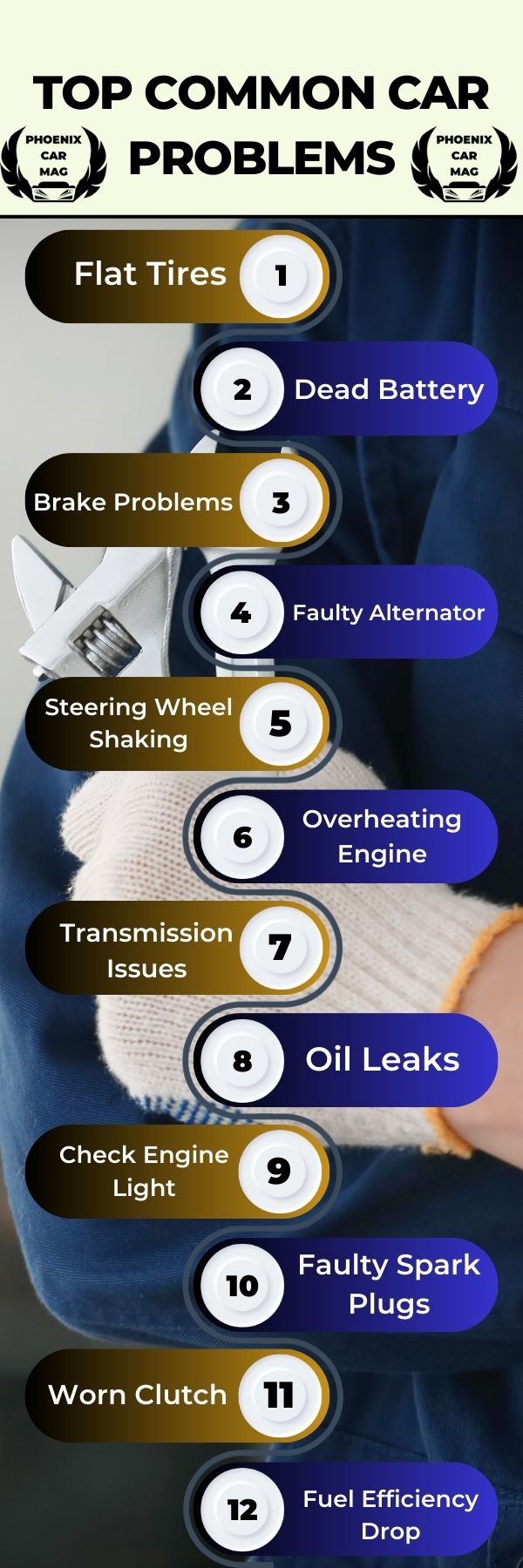
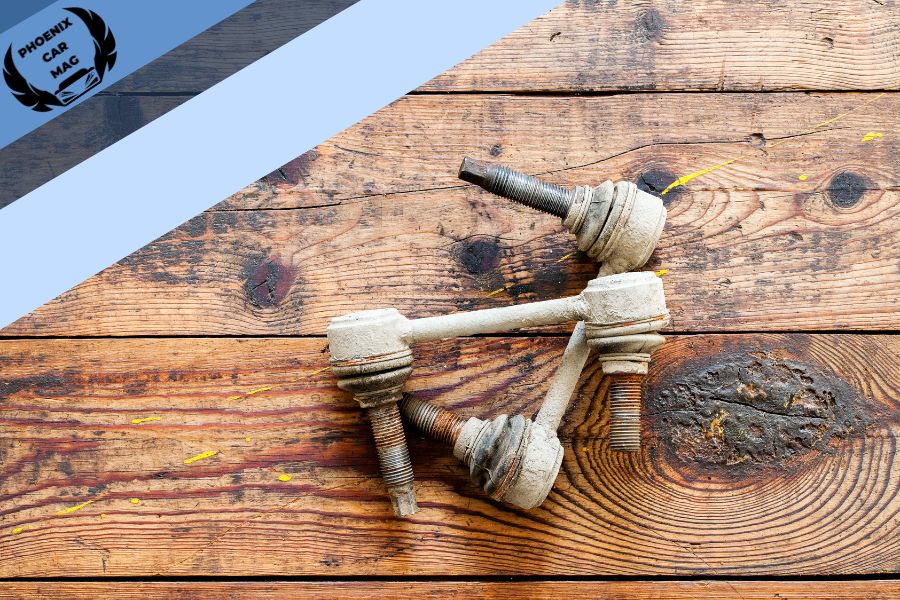
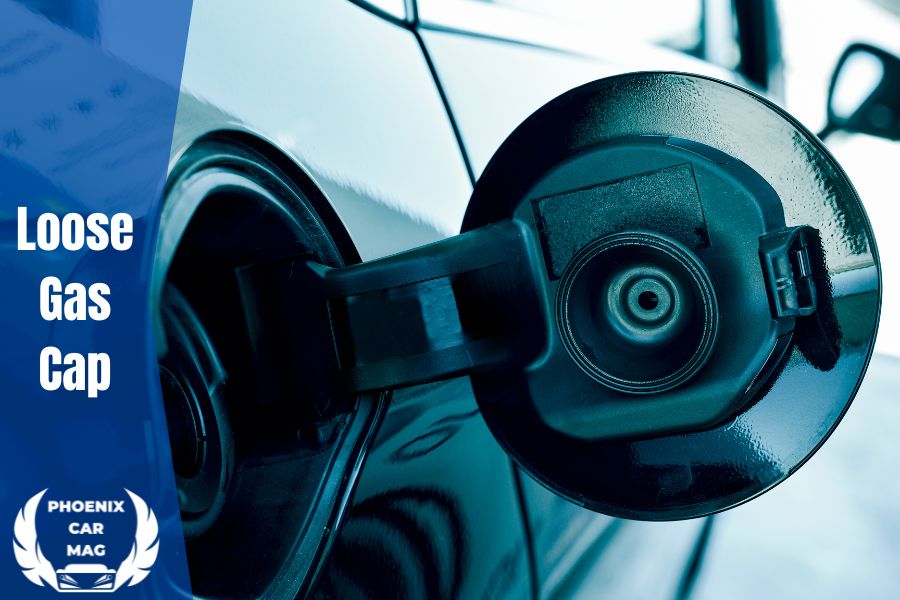
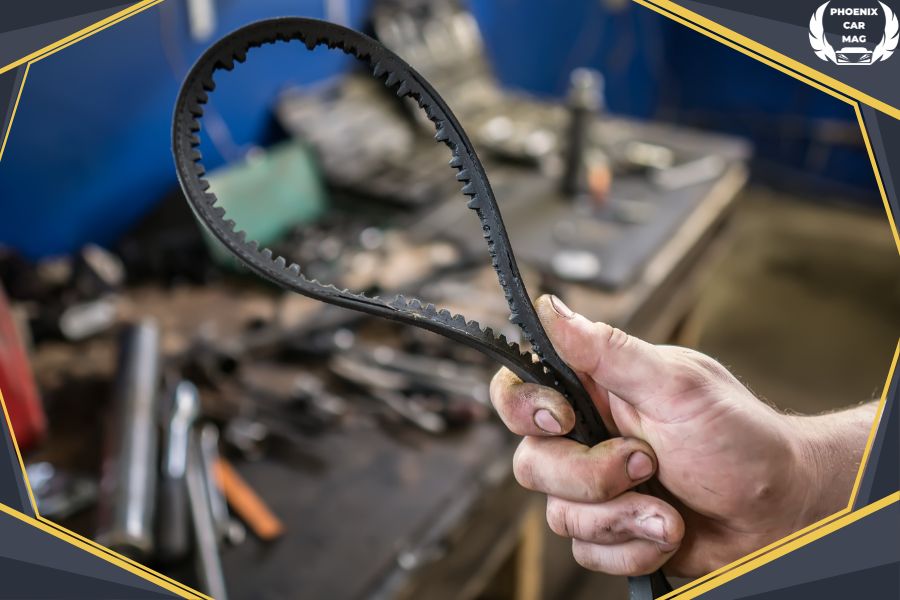
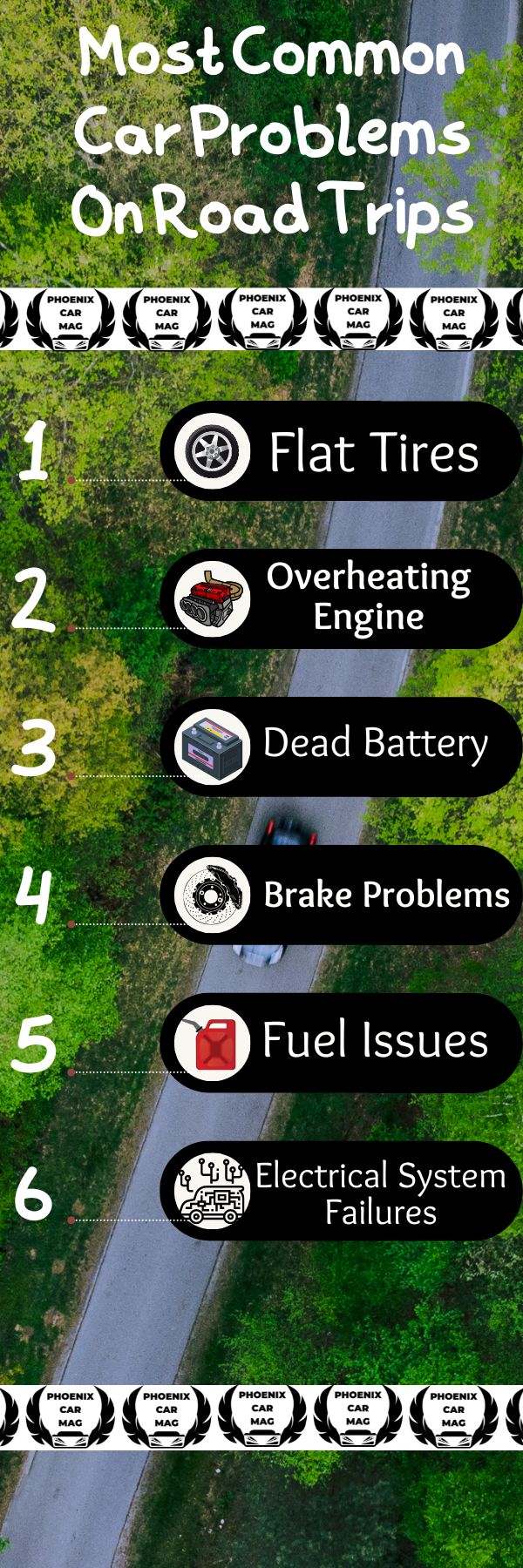
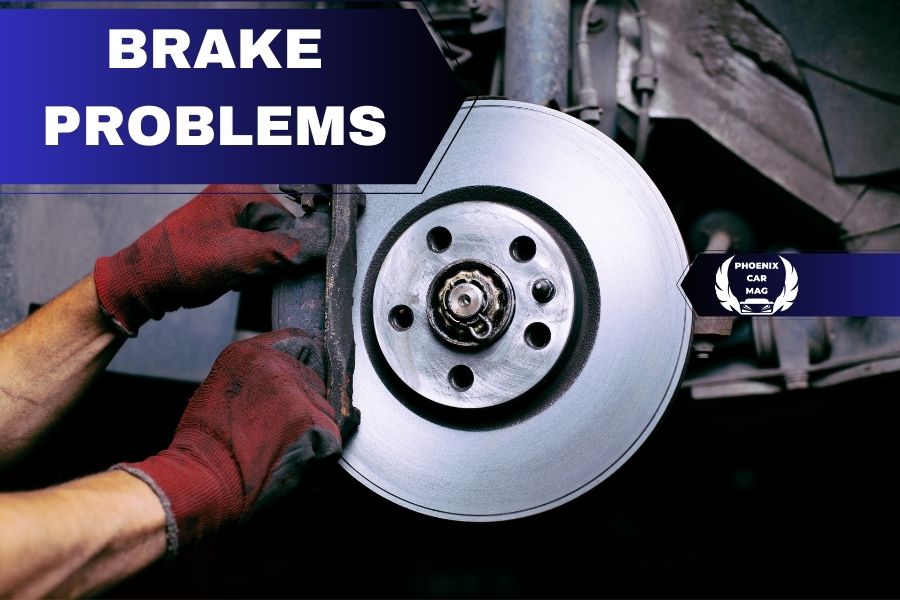
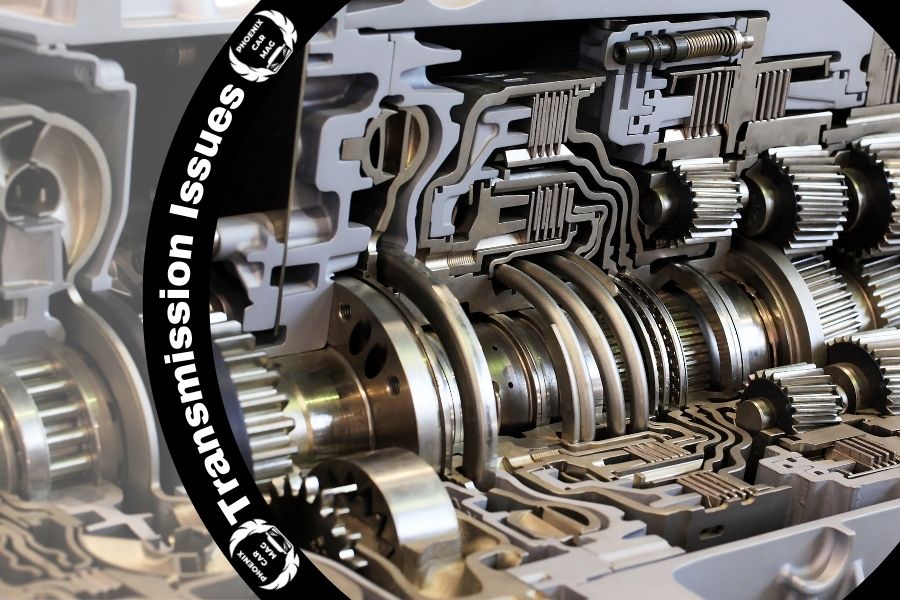
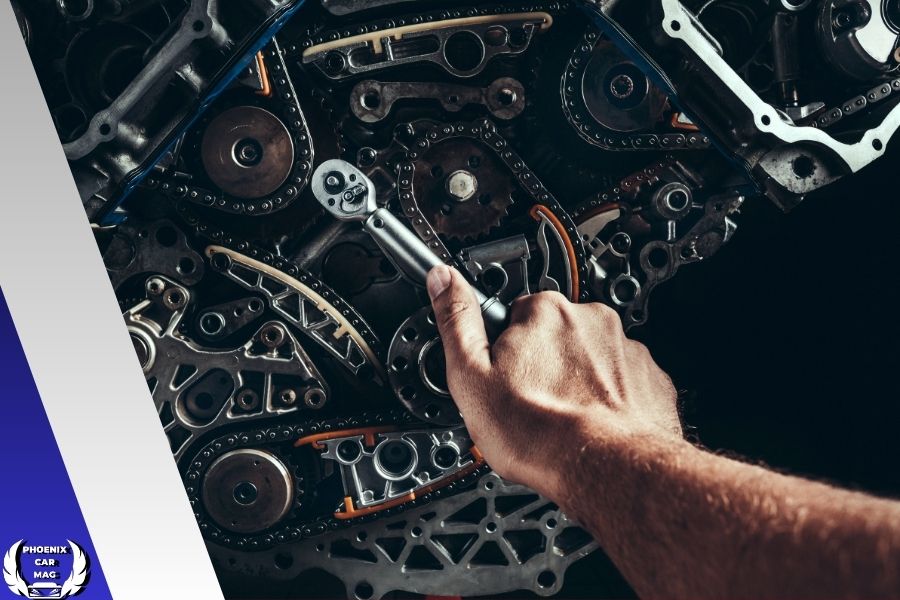
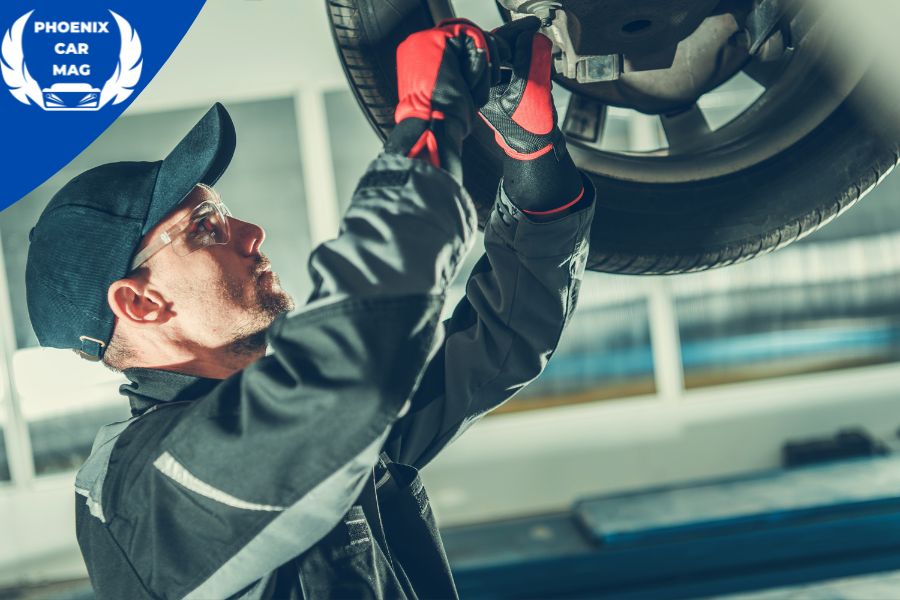



![Brake Fluid Change: Costs + Signs + Everything [2024]](https://phoenixcarmag.com/wp-content/uploads/2024/01/Brake-Fluid-Change-Costs-Signs-Everything-2024-2-308x180.jpg)
![10 Key Differences between 4.3 and 4.3 Vortec [2023] 10 Key Differences between 4.3 and 4.3 Vortec [2023]](https://phoenixcarmag.com/wp-content/uploads/2023/08/10-Key-Differences-between-4.3-and-4.3-Vortec-2023.png)